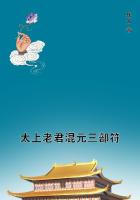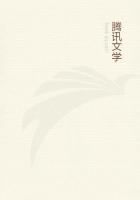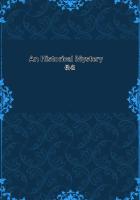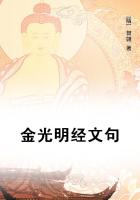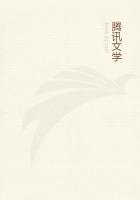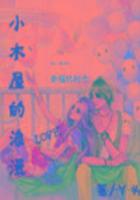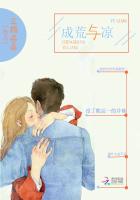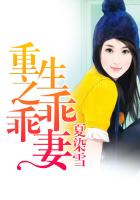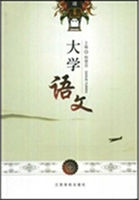We recognise that it was inevitable that this womanhood--born it would seem from its elevation to guide and enlighten a world, and in place thereof feeding on it--should at last have given birth to a manhood as effete as itself, and that both should in the end have been swept away before the march of those Teutonic folk, whose women were virile and could give birth to men; a folk among whom the woman received on the morning of her marriage, from the man who was to be her companion through life, no contemptible trinket to hang about her throat or limbs, but a shield, a spear, a sword, and a yoke of oxen, while she bestowed on him in return a suit of armour, in token that they two were henceforth to be one in toil and in the facing of danger; that she too should dare with him in war and suffer with him in peace; and of whom another writer tells us, that their women not only bore the race and fed it at their breasts without the help of others' hands, but that they undertook the whole management of house and lands, leaving the males free for war and chase; of whom Suetonius tells us, that when Augustus Caesar demanded hostages from a tribe, he took women, not men, because he found by experience that the women were more regarded than men, and of whom Strabo says, that so highly did the Germanic races value the intellect of their women that they regarded them as inspired, and entered into no war or great undertaking without their advice and counsel; while among the Cimbrian women who accompanied their husbands in the invasion of Italy were certain who marched barefooted in the midst of the lines, distinguished by their white hair and milk-white robes, and who were regarded as inspired, and of whom Florus, describing an early Roman victory, says, "The conflict was not less fierce and obstinate with the wives of the vanquished; in their carts and wagons they formed a line of battle, and from their elevated situation, as from so many turrets, annoyed the Romans with their poles and lances.(The South African Boer woman after two thousand years appears not wholly to have forgotten the ancestral tactics.) Their death was as glorious as their martial spirit.
Finding that all was lost, they strangled their children, and either destroyed themselves in one scene of mutual slaughter, or with the sashes that bound up their hair suspended themselves by the neck to the boughs of trees or the tops of their wagons." It is of these women that Valerius Maximus says, that, "If the gods on the day of battle had inspired the men with equal fortitude, Marius would never have boasted of his Teutonic victory;" and of whom Tacitus, speaking of those women who accompanied their husbands to war, remarks, "These are the darling witnesses of his conduct, the applauders of his valour, at once beloved and valued.The wounded seek their mothers and their wives; undismayed at the sight, the women count each honourable scar and suck the gushing blood.They are even hardy enough to mix with the combatants, administering refreshment and exhorting them to deeds of valour," and adds moreover, that "To be contented with one wife was peculiar to the Germans; while the woman was contented with one husband, as with one life, one mind, one body."It was inevitable that before the sons of women such as these, the sons of the parasitic Roman should be swept from existence, as the offspring of the caged canary would fall in conflict with the offspring of the free.
Again and again with wearisome reiteration, the same story repeats itself.
Among the Jews in the days of their health and growth, we find their women bearing the major weight of agricultural and domestic toil, full always of labour and care--from Rachel, whom Jacob met and loved as she watered her father's flocks, to Ruth, the ancestress of a line of kings and heroes, whom her Boas noted labouring in the harvest-fields; from Sarah, kneading and baking cakes for Abraham's prophetic visitors, to Miriam, prophetess and singer, and Deborah, who judging Israel from beneath her palm-tree, "and the land had rest for forty years." Everywhere the ancient Jewish woman appears, an active sustaining power among her people; and perhaps the noblest picture of the labouring woman to be found in any literature is contained in the Jewish writings, indited possibly at the very time when the labouring woman was for the first time tending among a section of the Jews to become a thing of the past; when already Solomon, with his seven hundred parasitic wives and three hundred parasitic concubines, loomed large on the horizon of the national life, to take the place of flock-tending Rachel and gleaning Ruth, and to produce amid their palaces of cedar and gold, among them all, no Joseph or David, but in the way of descendant only a Rehoboam, under whose hand the kingdom was to totter to its fall.(The picture of the labouring as opposed to the parasitic ideal of womanhood appears under the heading, "The words of King Lemuel; the oracle which his mother taught him." At risk of presenting the reader with that with which he is already painfully familiar, we here transcribe the passage; which, allowing for differences in material and intellectual surroundings, paints also the ideal of the labouring womanhood of the present and of the future:-"Her price is far above rubies, The heart of her husband trusteth in her, And he shall have no lack of gain, She doeth him good and not evil All the days of her life, She seeketh wool and flax, And worketh willingly with her hands, She is like the merchant ships;She bringeth her food, from afar, She riseth up while it is yet night And giveth meat to her household, And their task to her maidens, She considereth a field, and buyeth it;With the fruit of her hands she planteth a vineyard.
She girdeth her loins with strength, And maketh strong her arms.
She perceiveth that her merchandise is profitable;Her lamp goeth not out by night, She layeth her hands to the distaff, And her hands hold the spindle.

